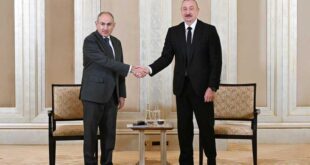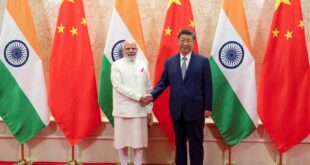Alan Cunningham
Realism is nothing more than the ideology of powerful states.
In Dunne and Schmidt’s chapter on realism for the International Relations (IR) textbook The Globalization of World Politics, all the rhetoric used seems to point to being about retaining and collecting power in whichever ways possible, at the cost of the civilian populace if necessary. To quote from them, “The fact that realism offers something of a ‘manual’ for maximizing the interests of the state in a hostile environment explains in part why it remains the dominant tradition in the study of world politics”; the main reason why realism is so important and prevalent within IR is due to its focus on the state and state power in general.
Examining the history of the realist theory by looking at the works of prominent realist theorists in the various camps of realism (classical, structured realism, and neoclassical), it is apparent that they were most concerned with how the state functioned to protect its own interests and how states pursued power and kept it.
All of these test’s relate back to the state and the state’s overall powers. Thucydides explained that, “the underlying cause of the [Peloponnesian] war was ‘the growth of Athenian power and the fear which this caused in Sparta … Thucydides makes it clear that Sparta’s national interest, like that of all states, was survival”. With Machiavelli, “the ultimate skill of the state leader is to accept, and adapt, to the changing power political configurations in world politics”. With Kenneth Waltz in the structural realist camp, the big idea of his work Theory of International Politics, was “Anarchy leads to a logic of self-help in which states seek to maximize their security”.
As for the neoclassical view, Randall Schweller in his journal article Neorealism’s status‐quo bias: What security dilemma?, makes the case that “the assumption that all states have an interest in security results in neo-realism exhibiting a profoundly status quo basis”. In all of the camps, which vary and disagree with each other in terms of the extent of human nature and individual variation, all mention the state as being the primary actor and, seemingly, the only true actor to matter.
Throughout the texts, the only states that are discussed within realism are the Spartans and Athenians (both of whom were extremely powerful before and during the Peloponnesian Wars), the United States (in the context of the Cold War and the 2003 War in Iraq), and the Soviet Union (in the context of the Cold War). These four case studies were all powerful in the contexts described, with the Athenians having one of the most advanced and robust Navies, the Spartans being talented in various intelligence and ground warfare areas, and with the U.S. and the Soviets both being the superpowers in the post-World War II era, having extensive military capabilities, economic capital, and the manpower needed to propel these political machines.
All of them were powerful within their own spheres of influence and extremely adept at carrying out foreign policy objectives conducive to their own political and military interests.
The assertion that realism is entirely about power as well would be an absolutely correct. Encyclopedia Britannica, perhaps one of the foremost publicly available and academic encyclopedias in the world, even defines realism in it’s most basic form as being a theory that “emphasizes the role of the state, national interest, and power in world politics”.
Being that the state is the main power for a civilization or region, it is understandable that realists are most heavily focused on that area in this field of thought.
In looking at the theory as a whole, one is reminded of Henry Kissinger and his way of thinking on foreign policy in addition to the way he saw and dealt with geopolitics and foreign affairs. Kissinger was one of the most effective Secretaries of State in the history of the U.S. in addition to becoming a name synonymous with 20th century U.S. foreign policy and realpolitik. His theories and actions embodied the realist point of view and showed how destructive the line of thought could be to other countries or simply other nation-states in general.
This is, at least personally, one of my own biggest qualms with realism; in its most basic form, it is entirely about power and security of the state with no regard for other states’ well-being.
Using Kissinger as an example, we have multiple attempts of his trying to ensure that the U.S. did not fall behind in its security structure nor lose its global perception as a superpower in allowing a public assassination to be conducted on U.S. soil, ignoring a genocide committed by American-backed Pakistani military forces, and attempts to stop the Carter administration from halting Jorge Videla’s disappearances of thousands of people. Kissinger exemplifies the field of thought and position that states are ahead of others in terms of power and ensuring that their position within the realm of security and global stage are secured in addition to how disastrous it can be utilized and the potential problems with purely thinking about how the state can be improved and its overall power can be secured.
Kissinger’s famous quote of “Power is the ultimate aphrodisiac” is an accurate way of summing up how realists think about international relations and global politics.
 Geostrategic Media Political Commentary, Analysis, Security, Defense
Geostrategic Media Political Commentary, Analysis, Security, Defense





